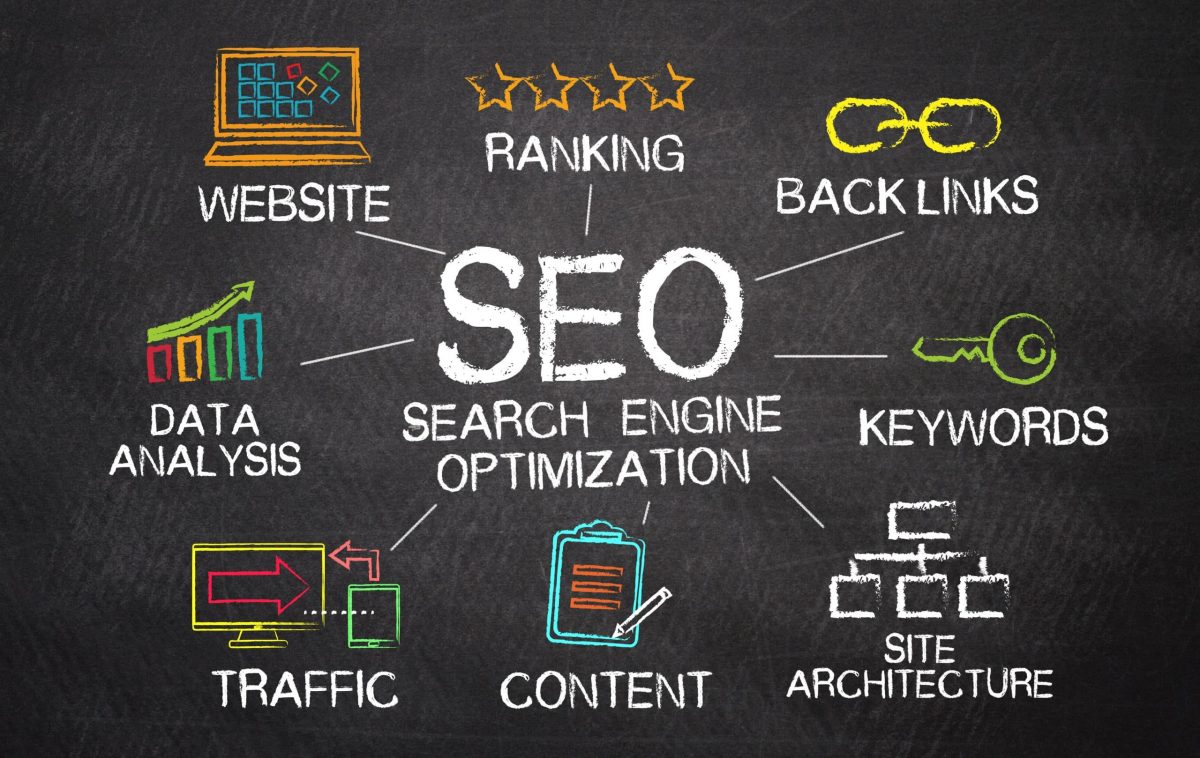What is SEO?
SEO stands for search engine optimisation. This is the method of optimising websites for organic (free) traffic from Google search results. In other words, SEO entails making improvements to the content of your webpage to make it more appealing to search engines, in the hopes that it will appear on the first page of the search results list.
How does SEO marketing work?
The aim of search engines is to offer the best possible experience to their users. This includes providing search results that are not only of high quality, but are also important to the searcher’s needs. To do this, search engines can browse or crawl various pages in order to identify what they are about. This allows them to include more important results to those who are looking for them.
Search engines will also check a website to see how convenient it is to browse, focusing on giving user-friendly pages higher SERP scores. In this way, SEO is the mechanism by which businesses ensure their websites rate highly in search engines for related key words.
Benefits of SEO
Improving your SEO provides a range of benefits for your website and brand including:
- Allowing you to communicate with a larger number of prospective clients.
- Improving your chances of pulling in more relevant organic audiences through more entertaining and effective SEO-focused content.
- Improving the exposure and awareness of your brand online.
Factors Influencing SEO Definition, Meaning, and Marketing
The reality is that SEO marketing is efficient, and with proper execution, everyone can achieve great outcomes. But there are some factors that can impact the effectiveness of your SEO.
Google, the world’s biggest search engine, will never reveal the precise algorithm that it uses to rate websites. We do, however, have a fairly good idea of most of the variables that influence search engine result ranking. These variables comprise of both on-page and off-page elements:
- Content Marketing
- On-page SEO Optimisation
- Off-page SEO Optimisation
Content marketing involves the information you are sharing with you audience as a brand, such as on your website, through email marketing, or on social media.
Begin by writing a few blog entries and working to create a social media following. If you have a community of devoted fans and supporters, your company will work to develop various forms of marketing to draw and involve potential clues.
On-page SEO factors are elements within your website. These are the aspects which you have full control over, meaning you can develop this over time adhering to best practice for SEO.
Below are a few examples of on-page SEO considerations that can assist you in improving your Search results ranking:
- Title tag
- Meta description
- Sub-headings
- Internal links
- Image name and ALT tags
Aside from the on-page SEO aspects that your company can influence, there are also off-page SEO considerations that can affect your rank.
Though you have no real influence of such off-page causes, there are ways to increase the likelihood of them working in your favour.
Increase the popularity of your customised content by posting it on social media and linking to it. These should be internal links to other locations on your website, as well as external links to other websites or social media posts.
Below are a few examples of off-page SEO considerations that may have an effect on the search rankings:
- Trust
- Links
Instead, invest time in cultivating partnerships with bloggers and users who can contribute to your platform with their own posts.
- Social
You can also increase your chances of improving off-page SEO simply by creating quality content that others will find valuable. No one really knows what happens outside their company, so the only option to easily improve your off-page SEO is by making high-quality content that someone else considers important.
SEO Tools
There are a range of tools that you can use to measure and monitor your SEO performance. Here are some of our favourites:
- Google Analytics
- Google Search Console
- Uberrecommend
- MozBar
- SEOWorkers Analyzer
- WooRank Website Evaluations
- Neil Patel’s SEO Analyzer
Good luck..

